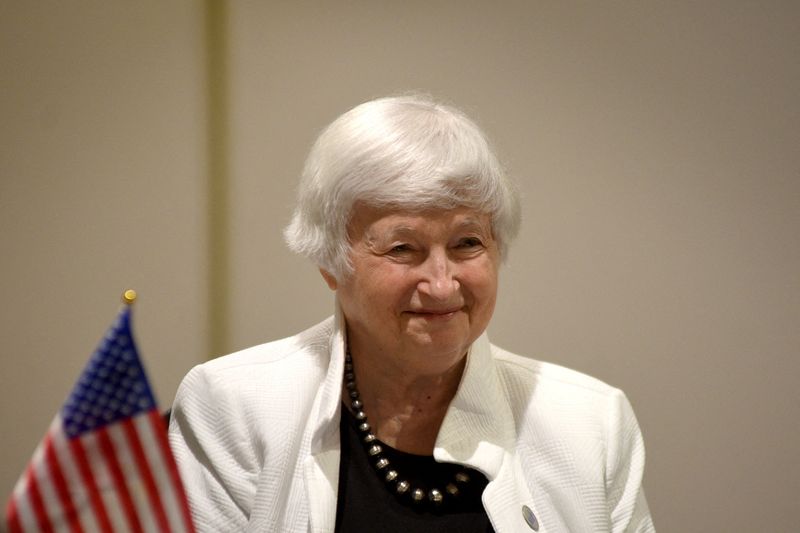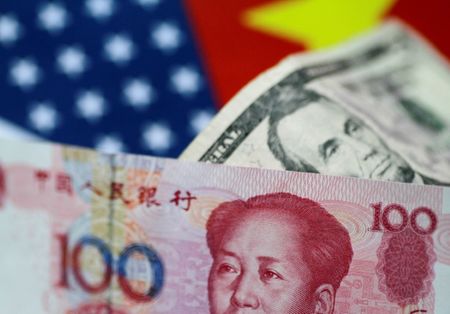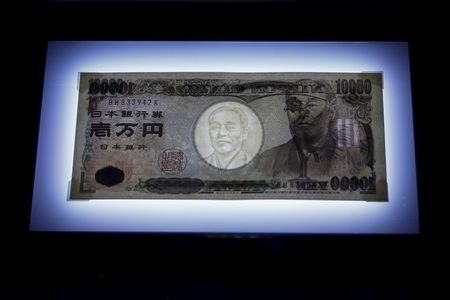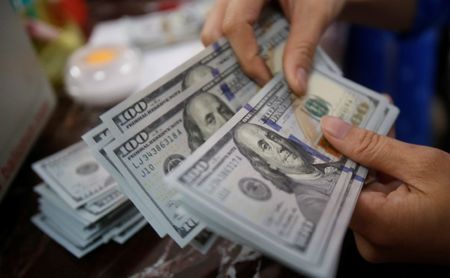The dollar was down on Wednesday morning in Asia and the euro was near its weakest in a month versus the safe-haven dollar and Japanese yen. Investors remain concerned about a potential armed conflict in Ukraine, and faster-than-expected U.S. policy decision monetary policy tightening.
The U.S. Dollar Index that tracks the greenback against a basket of other currencies inched down 0.01 % to 95.920 by 10:19 PM ET (3:19 AM GMT).
The USD/JPY pair inched up 0.02% to 113.89.
The AUD/USD pair edged up 0.14% to 0.7158, with Australian markets shut for a holiday. The NZD/USD pair inched down 0.06% to 0.6682.
The USD/CNY pair inched down 0.08% to 6.3227 and the GBP/USD pair edged up 0.12% to 1.3512. The U.K. is also dealing with an investigation into whether Prime Minister Boris Johnson potentially breached COVID-19 lockdown rules. The findings of an internal inquiry could be announced later in the day.
The euro was about flat at $1.1303 after falling to $1.1264 overnight for the first time since Dec. 21, 2021. The single currency also inched down 0.06% to 128.64 yen after hitting the 128.25 mark during the previous session, also a first since Dec. 21.
Western leaders continue to accelerate preparations to counter any Russian military action in Ukraine, while Russia expressed “great concern” after 8,500 U.S. troops were put on alert to deploy to Europe if an escalation takes place.
The focus was also on the Fed, which will hand down its policy decision later in the day. Investors will be looking for clues for the timing of interest rate hikes and quantitative tightening (QT), but money markets are currently priced for a first hike as early as March 2022.
“Market sentiment remains fragile,” TD Securities analysts said in a note.
From the Fed, “any hints around the starting point for QT or ‘sooner’ and ‘faster’ on hikes could be market-moving,” but “we don’t expect definitive signals, unfortunately, and the result could be mixed messages.”
The Bank of Canada will also hand down its policy decision later in the day, with the Canadian dollar edging up to CAD$1.2622 against its U.S. counterpart.
“There is a huge amount of uncertainty around the January Bank of Canada rate announcement, as policymakers attempt to balance very strong realized data on employment and inflation from Q4 versus the sharp increase in COVID infections and subsequent lockdowns in late December and January,” according to TD Securities analysts.
The South African Reserve Bank will hand down its policy decision on Thursday, while the Reserve Bank of Australia (RBA) will follow in the following week.




